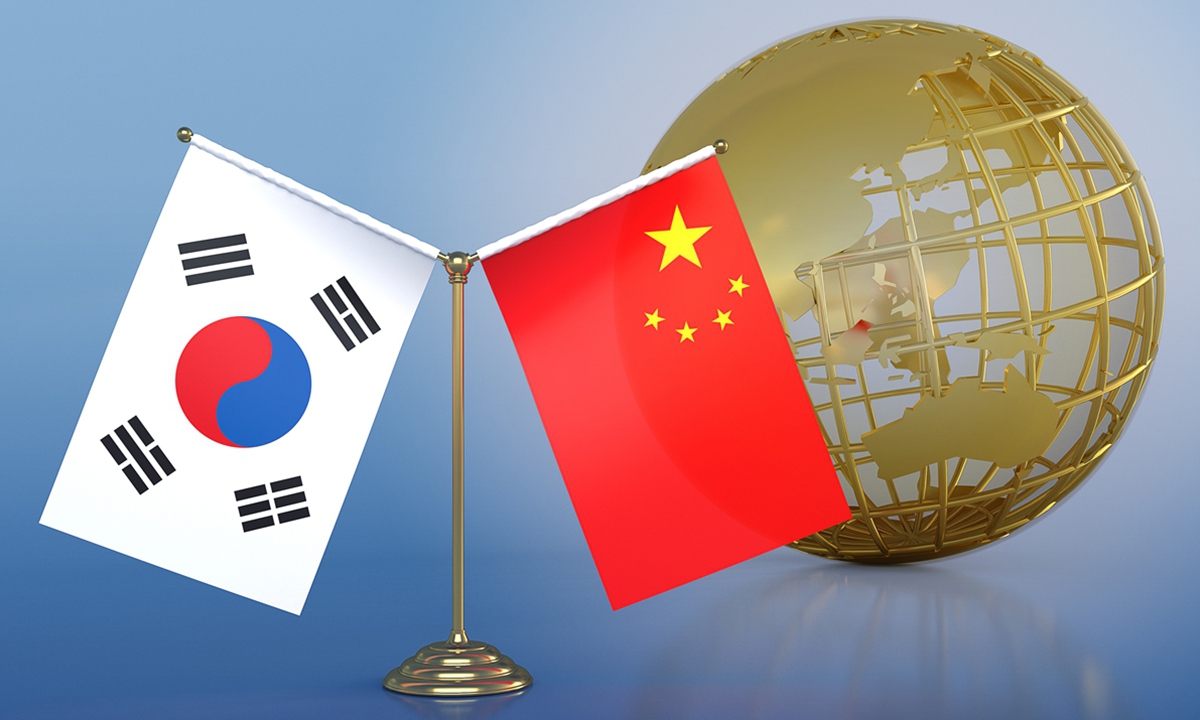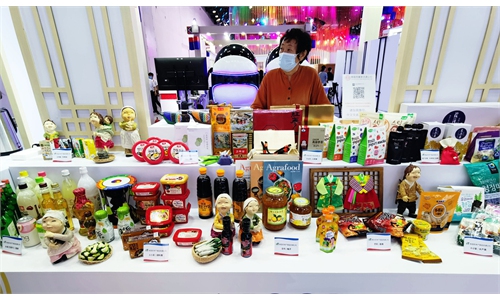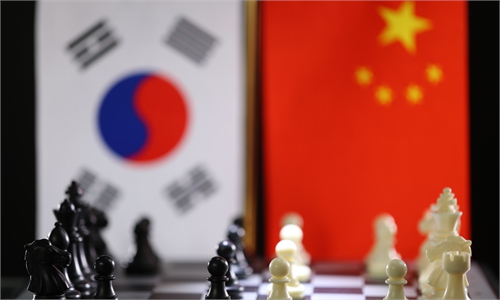
China South Korea Photo:VCG
About half of the South Korean companies in China said their sales and profits are likely to have decreased in 2022 due to reduced local demand, fierce market competition and the ongoing epidemic, according to a survey released by the Korea Institute for Industrial Economic and Trade on Wednesday, South Korean business news portal Business Korea reported.While it is unclear to what extent the survey could reflect the performance of South Korean companies in China over the past year, one thing is certain that a strong desire to expand businesses in China is still the mainstream among these companies. The fact that South Korea significantly increased investment in China last year is sufficient proof demonstrating the confidence and enthusiasm of South Korean companies in developing in the country. China's actual use of foreign capital rose 9.9 percent year-on-year to 1.15 trillion yuan ($167 billion) during the first 11 months of 2022, according to data issued by the Ministry of Commerce in late December. And South Korea topped the list with investment growth of 122.1 percent during the same period.
As for the possible scenarios that led to some South Korean companies potentially seeing a drop in sales and profits in China, the reasons may be complicated. It is true that the Chinese economy has faced certain headwinds and has been pressured by some internal and external factors, but fundamentals that support sound long-term economic development in China remain unchanged. Therefore, in addition to roughly attributing the business downturn to the environment, which may not accurately reflect the whole picture of challenges facing South Korean companies in China, they may also need to find their own reasons for the less satisfying performance.
Moreover, competition in the Chinese market is becoming increasingly fierce due to the rise in strength of Chinese manufacturing, which may also have played a part in the profit decline of South Korean companies last year. In order to achieve stronger development in China, it is essential for South Korean companies to improve their competitiveness in terms of localization and transformation based on the better understanding of the market.
But the real obstacle preventing South Korean companies from achieving better development in China may be the US influence over bilateral cooperation. It is no news that South Korea is facing pressure from the US in some high-tech sectors, and yielding to such pressure will inevitably hurt the interests of South Korean companies. The Biden administration announced the launch of the Indo-Pacific Economic Framework for Prosperity, with South Korea and other regional economies as initial partner, and the US also proposed the so-called "Chip 4" alliance as part of the efforts to contain the development of China's industrial chain.
In this context, the challenges and pressure facing South Korean companies in China actually suggests the growing urgency of strengthening cooperation between the two countries. Despite the geopolitical resistance, the trend of increasing investment is the best proof of the closer ties between the business communities of the two countries over the past year. China encourages the development of high-tech, high value-added industries, which offers potential for supply chain cooperation with South Korea. Moreover, the Regional Comprehensive Economic Partnership, which came into effect at the beginning of 2022, has made bilateral cooperation on a sounder footing.
While there are certain voices calling for moving production out of China due to the US pressure, this is by no means the mainstream public opinion and will not be accepted at the government and business levels, which apparently have a clear idea of what is in their best interests.
So the question for both countries now is how to resist external pressure to further promote cooperation. In the past, trade and investment cooperation between China and South Korea mostly focused on labor-intensive industries. But things changed a lot over the past decade as the space for cooperation has expanded to many frontier areas, such as semiconductors.
For South Korea, the key to the future is how to further consolidate supply chain and industrial chain with China while expanding their share in the Chinese market, under the circumstances of a recovery in the Chinese economy.



